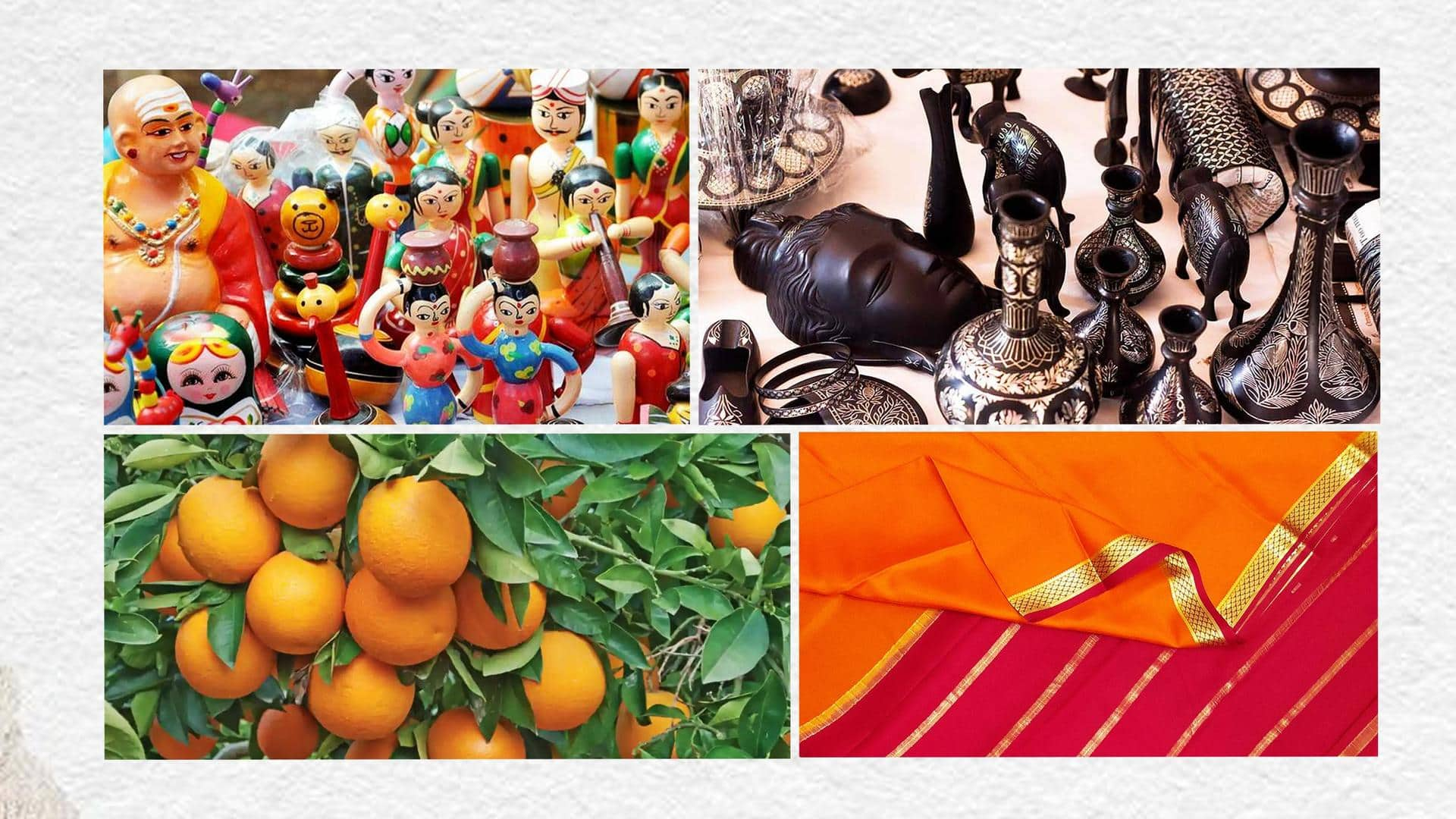
6 GI-tagged items you must shop from Karnataka
What's the story
A Geographical Indication (GI) tag is a label applied to items with a known geographic origin. This badge of honor vouches for the quality and reputation of the item originating from the said area. Karnataka has a total of 46 GI-tagged products to its credit till now, the highest among Indian states. Here is a list of six products that you should consider shopping.
Item 1
Bidriware
Bidriware is an ancient craft of inlaying pure silver and gold wires in metal, out of which beautiful designs are carved out. The term 'Bidriware' indicates metalware that is named after the region of Bidar, believed to have originated in 14th century AD. The highlight of the product is the shiny silver inlay on the black-oxidized background giving it an exquisite look.
Item 2
Channapatna toys
The history of Channapatna toys dates back to the reign of Tipu Sultan after he was impressed by the vibrant and durable lacquerware wooden toys from Persia. He then invited the Persian artisans to train the locals of the Mysore Presidency and thus began its journey in the country. These toys are known for their vibrant color, smooth texture, non-toxicity, and eco-friendliness.
Item 3
Dharwad pedha
A Thakur family from Unnao, Uttar Pradesh, who migrated to Dharwad (now in Karnataka) during the plague in the 18th-19th century, invented Dharwad pedha. What began as a way of life evolved into a best-selling product, with the secret recipe being passed down through generations. The Dharwad pedha has a distinct dark brown color as opposed to the traditional peda's creamy white color.
Item 4
Mysore silk
Mysore silk holds the distinction of being the first product from Karnataka to bear the Geographical Indication (GI) label. It is renowned for quality, luster, and elegance. It's one of the most expensive sarees because it's made of 100% pure silk, with zari borders made of 65% pure silver and 0.65% gold. Mysore silk is also used to make shirts, kurtas, dhotis, and neckties.
Item 5
Kasuti embroidery
The word "kasuti," which refers to hand embroidery done with cotton threads, is derived from the words "kai" (hand) and "suti" (cotton). The main significance of this embroidery is that the designs aren't traced but rather carried out directly on the fabric. The embroidery, inspired by rangoli patterns, is commonly done on the Ilkal saree and Khun blouse
Item 6
Coorg orange
Coorg orange, also called Coorg mandarin, is a variety of orange from Kodagu in Karnataka. Coorg oranges and other mandarin oranges cultivated in diverse coffee zones are highly sought after in the market because of their desirable golden tint, ease of peeling, great palatability, lack of seediness, and the ideal balance of acid and sweetness. These oranges are highly nutritious and delicious.